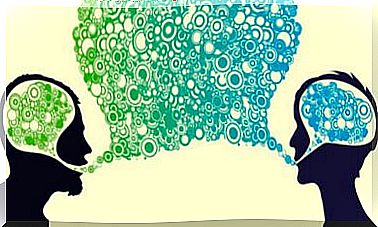The Benefits Of Talking To Babies

New studies show, talking to babies increases their brain power. Reading bedtime stories to babies and talking to them from birth increases their brain power and prepares them for success in school, researchers say.
Research by developmental psychologist and Stanford University professor Anne Fernald conducted with infants and toddlers has found that there are notable differences in their vocabulary and language, as well as in processing skills at 18 months of age. age.
Children whose parents spoke to them less fared worse on language tests, to such an extent that some 24-month-olds lagged behind children their own age by a difference of six months. This difference continued to be a handicap for the less advanced children and influenced their school results for the next six years.
Professor Fernald said that talking to the babies helped them understand the rules and rhythms of language at an early age and provided a foundation for building an understanding of how the world worked. Repetition helps children remember words, while learning relationships between words helped them build a picture of the world that paid off when they reached school age.
“You have to start talking to them from day one, ” Fernald told the American Association for the Advancement of Science at its annual meeting in Chicago. “You are building a mind, a mind that can conceptualize, that can think about the past and the future.”
Fernald described a series of experiments that tested children’s language processing skills. In one of the tests, infants and toddlers sat on their parents’ laps in front of a computer that displayed images of a child and a dog’s face next to it. The researchers used slow-motion video cameras to record how quickly the children changed their gaze from the wrong image to the correct one when told to look at the child or look at the puppy.
The test was intended to measure the child’s ability to process linguistic information. In younger children there was a pause before looking at the other image, but as children develop their language skills, they change their gaze much faster, until they fixate on the indicated image before they have finished giving. indication.
In this study, Fernald found that slower children took 200 milliseconds longer to find the correct image. The different speeds were reduced in the children whose parents spoke with them. When parents talked more with children, their children’s language processing had improved and they learned new words more quickly.
Although the difference in achievement was marginal, it had a striking effect on children’s readiness for school. In this sense, verbal skills in five-year-olds were compared, and it was found that some children were two years behind others in verbal and memory skills.
Professor Fernald said that children developed language best when their parents or caregivers talked to them about things the little ones found interesting. He also said that neither television nor gaming tablets could substitute for a conversation that focused on the child and his interests, and could even have harmful effects on children’s language development.
“Parents who speak more to their children are more likely to reach their full developmental potential , ” Fernald said. “You are obliged to feed them, wash them and dress them. Talk to them while you’re doing it. ” In this sense. Fenarld added that it was not necessary to stop working or going to school to be able to talk to the children.
Additionally, Professor Erika Hoff, a developmental psychologist at Florida Atlantic University, says that parents should not limit their conversations to speaking simplistically. Rich and complex language, with adjectives and subordinate clauses, also helps to learn the complex structure of language. “Children cannot learn what they do not hear,” he said.









